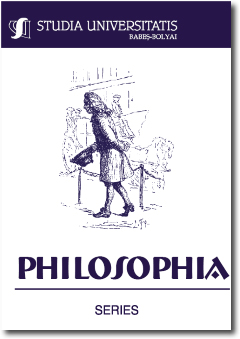INTRODUCTION
INTRODUCTION
Author(s): Hans H. DiebnerSubject(s): Philosophy
Published by: Studia Universitatis Babes-Bolyai
Summary/Abstract: Whilst there exists a discourse on performativity within social sciences and the humanities for quite some time it is rather new to discuss performative aspects within the „hard“ sciences like physics, too, with Andy Pickering’s „Mangle of Practice“ being a seminal work in this context. Pickering (and others) argues that the concept of performativity can fruitfully be applied to action theoretical considerations in the experimental process. Borrowing the notions of “context of discovery” and “context of justification” from Hans Reichenbach, Pickering’s result might be accepted as an aspect within the context of discovery but incompatible with the context of justification. Karl Popper adopted Reichenbach’s classification in large and cemented the primacy of the context of justification (via falsification) although Charles S. Peirce a few decades before showed evidence that neither from deduction nor from induction, i.e., the two most important procedures of justification, emanates any new knowledge but rather from what he called abduction, which, in essence, is the very process of constructing new hypotheses. It appears plausible that from the modern perspective of the performative, abduction can be seen as an aspect of performativity although the relation to Peirce’s pragmatism has to be scrutinised. Hence, form this point of view, performativity is in essence a modern notion that brackets concepts of tacit knowledge, action theoretical considerations, and a variety of works that focus on “doing” and the role of being bodily involved in the process of understanding.
Journal: Studia Universitatis Babes-Bolyai - Philosophia
- Issue Year: 57/2012
- Issue No: 1
- Page Range: 3-7
- Page Count: 5
- Language: English

